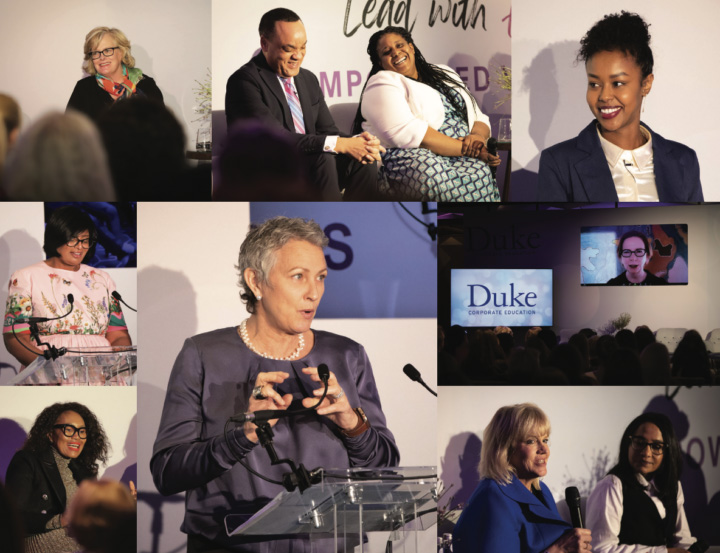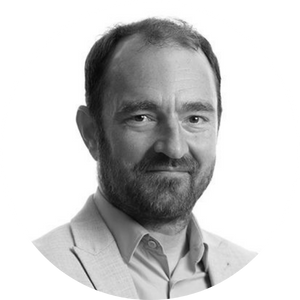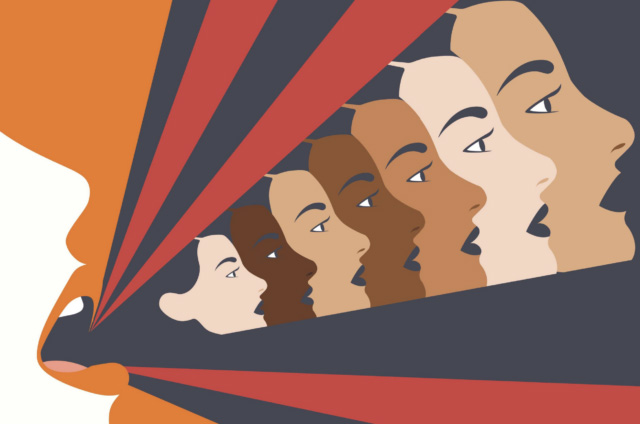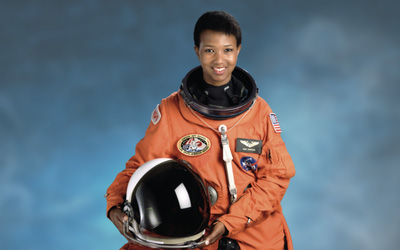Lead with Her showed why all leaders – male and female – must contribute to women’s professional advance.
What have men got to do with it? Rather a lot, as it turns out. That was the message from Julia Gillard, 27th prime minister of Australia turned chair of the Global Institute for Women’s Leadership – at Duke Corporate Education’s recent Lead with Her conference.
Gillard – the first and only female prime minister of Australia – used her keynote speech to call for men to mobilize alongside women in the fight against gender inequity. “The research shows that if a man calls out a gendered problem – he points to a lack of gender equality – then something sticks,” Gillard told Lead with Her, which was staged in London, and online, this spring. “He will be more likely to be believed than if a woman calls it out.
“In some ways, I do find that a bit galling, but I think it springs from the fact that if a woman points to something that is gendered, the cynical voice in the back of our brains says to us, ‘Is she saying that because she really believes that? Or is she saying that because she’s trying to get some form of personal advantage at work?’ People think about the conflict of interest.
“But if a man says it is, he is just believed, he seems to be calling it out with no conflict – he’s the sort of person who cares about his work colleagues and cares about points of principle.
“This is all upside for men. The more they get involved, the more they say, the more they do, the better it is for them. So, I would urge men to think about that – and to double down on what they’re doing now for gender equality.”
The quota dividend
Gillard’s call to arms – for men to be vocal allies in the global battle for gender equity – reflected another high-powered call for direct action: by former Lloyds of London chief executive Dame Inga Beale.
After returning from a sojourn in Australia, Dame Inga was offered a promotion because, she said, she was the only female candidate and the recruiting manager had to fulfil a quota. She initially refused, but eventually agreed to take the post: “It was only years later, when I got to a sufficiently senior level, that I realized there were targets.”
Dame Inga credits the quota system for her eventually reaching the top. “Still today we are debating it,” she said. “Why? If I had not happened to join that company, by being the only woman and therefore being promoted, I would never have later become the CEO of Lloyds of London, because, like every other company in the City, the behaviours, the biases, the societal pressure – nothing there was going to make it easy for any woman to make it.”
Indeed, Dame Inga became Lloyds of London’s first female chief executive in its then 328-year history in 2013. She stepped down in 2018.
Dame Inga’s was among a multitude of inspirational stories at the event. A panel on mentoring, hosted by event partner the International Women’s Forum (IWF), revealed the benefits for both sides of the exchange.
“The mentors and mentees learn from each other – which is why we refer to it as reciprocal mentoring,” IWF UK president Marty Rolle said. “One of our mentors said, ‘I gained more insight into how and to what extent the racial element influences a woman’s career development.’”
Challenge remains
Yet Professor Bill Boulding, dean of the Fuqua School of Business, reminded leaders that there was much work still to do. “There are exceptions. But, as a whole, we have been falling well short of greatness in building teams, for the simple reason that we have done a poor job of attracting, welcoming, retaining and promoting women,” Boulding said. “So, our teams are not as great as they could be. We have put an unnecessary cap on the potential of those teams.”
If Professor Boulding defined the battleground, Duke Corporate Education chief executive Sharmla Chetty issued the call to arms. “We are strong as sisters together, as friends, as allies,” she told delegates. “We have the power of our collective voices and the strength of shared experience that we can use to help each other. Let us commit to this change. Let us speak out when we see injustice. Let us stand up for what is right, every single day.”





